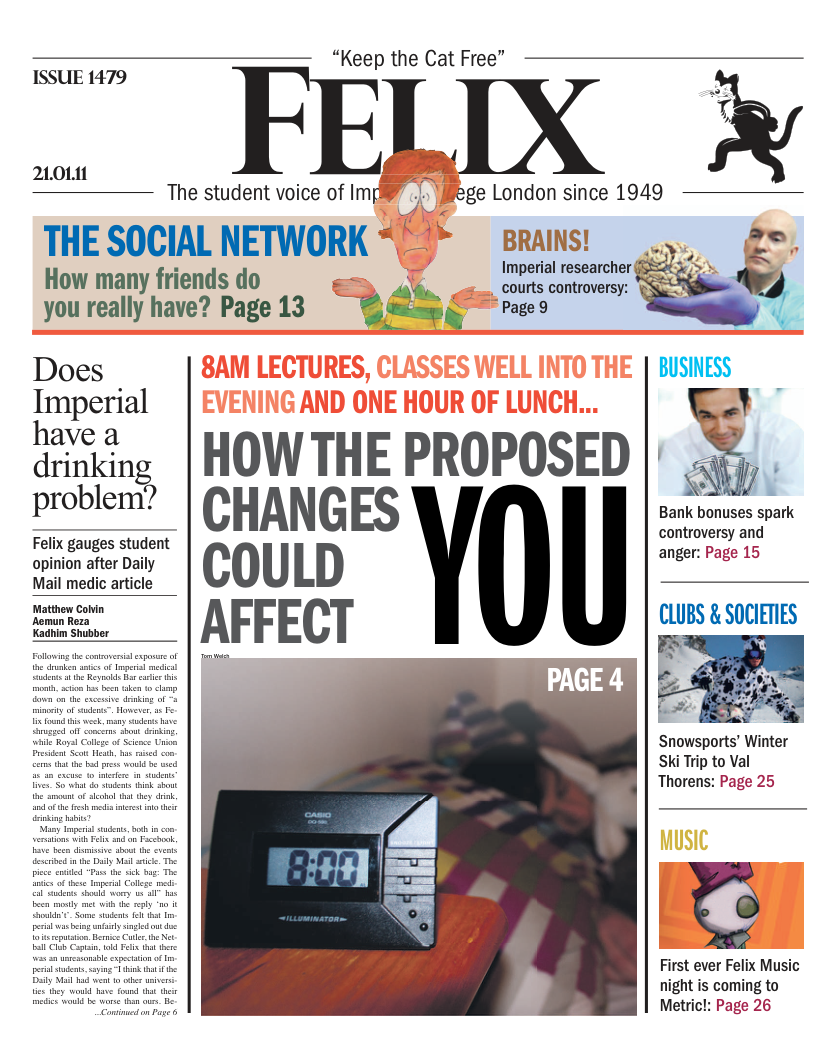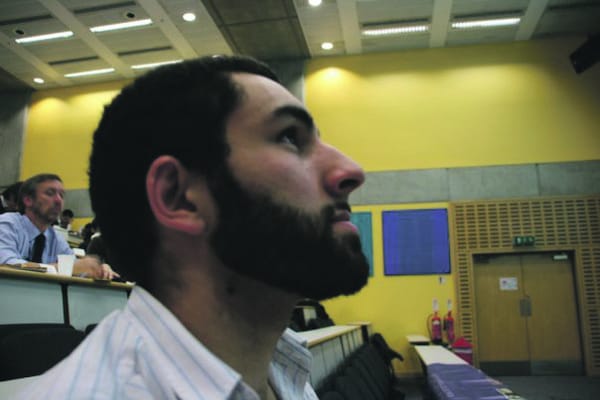Should we worry about climate change?
We are told that climate change is the most dangerous threat to the world today, but as measures to combat it stall, how much should we worry?
Charles Betts
The end of the world always seems to be approaching. The Millennium Bug was supposed to turn every computer on the planet mental, activating every nuclear bomb and killing us all on verse two of Auld Lang Syne. The UK chief medical officer told us in 2005 that bird flu would wipe out 50,000 of us Brits. And now we are all going to fry unless we recycle, turn the TV stand–by light off, and use a bag for life.
Climate change is a new religion. We’re led to believe that unless we put all our paper and plastic into separate bags, the entire world will flood and Al Gore will be in a very smug I–told–you–so mood. People that dare question climate change are treated like non-believers, in the same way religions mock one another.
Yet there is ignorance about climate change on both sides of the debate. I bet Samuel Furse, supporting climate change to my right, regularly goes to his local health store to buy organic nuts and dried fruit flown in from Brazil. And weather statistics can be distorted by either side – what if I told you that since 1998, the average temperature of the earth has shown no discernible warming?
Global summit upon global summit is spent harping on about how governments need to unite to fight this problem. What is the carbon footprint of flying the politicians to the talks? And for what? So that they can agree that something needs to be done, but not until some later date in the future? They are effectively saying that they don’t believe in any of it, but need to placate the media.
The whole thing removes valuable resources from more immediate and concrete issues, such as people trafficking, developing nations’ infrastructure, and developing an HIV vaccination. Governments should not pretend that climate change is a special case.
Implementing a green tax is simply a political ruse to get more money with minimal effort. I cannot believe that it would ever be popular to the majority of the population.
I do, however, see the benefit of a less polluted city. And a quieter one too. If introducing electric cars can help that, then excellent. I also like to pay less for my utility bills. So if using less gas saves me money, then great. And I understand the benefits of energy independence, so if nuclear power helps achieve that, fantastic. But don’t insult my intelligence by making me pay more tax if I want to drive a gas guzzler, or fly to Hawaii, simply on the premise that it will delay the end of the world by another year.
“People that question climate change are treated like non-believers”
Samuel Furse
A lot of rubbish is talked about climate change. A lot of work goes into the science of climatology, and there are a great many aspects to what this can mean. I am a biological chemist, so I tend to start from this perspective. It is as good as any, and provides an entry into understanding the physical aspects of climatology as well as the biological ones.
What is undeniable about human activity is that it has greatly increased atmospheric carbon dioxide concentrations. The burning of wood, coal, gas, oil, have all contributed to this. The loss of trees and plants has also greatly reduced an ecosystem’s ability to absorb this excess carbon dioxide. Although a rise in algae numbers might offset this, we are left with a net increase in the carbon dioxide. Studies by Lovelock et al., quoted in a recent documentary on his life’s work suggest, that this increase might be as much as 6%. This may sound like very little, but could have big consequences. The hole in the ozone layer (now repaired) was caused by a much smaller reduction in the percentage of ozone.
Let us change tack for a minute, and look at this from another angle. Geologists have found evidence for several ice ages over the last 500 million years. This we understand from three perspectives; paleontological evidence based upon the movement of fossils, chemical evidence based on storage of radio isotopes and geological evidence based on the characteristic impact of ice on sedimentary rock.
All of these point to a cyclical change between warmer and colder periods on Earth. What is perhaps more surprising is that we are ‘overdue’ for an ice age, and have been for several thousands of years. What has stopped it? Well if we assume that an ice age has been prevented because things have not been warm enough (controversial I know) we must look for reasons for that. A small increase in carbon dioxide could well be it. Certainly there is plenty of evidence for carbon dioxide being a good retainer of heat. The atmosphere of the planet Venus is 96·5% carbon dioxide and has a surface temperature of 460°C – hotter than Mercury, a planet much nearer the sun.
So, there is evidence than climate change has happened, but that does not necessarily mean an apocalypse. Of course we do not want too much heat, otherwise we would face a myriad of problems that might well kill us and quite a lot of everything else too. But, without warming, the Earth might well be deep into a -20°C ice age today which would also kill us all off.










